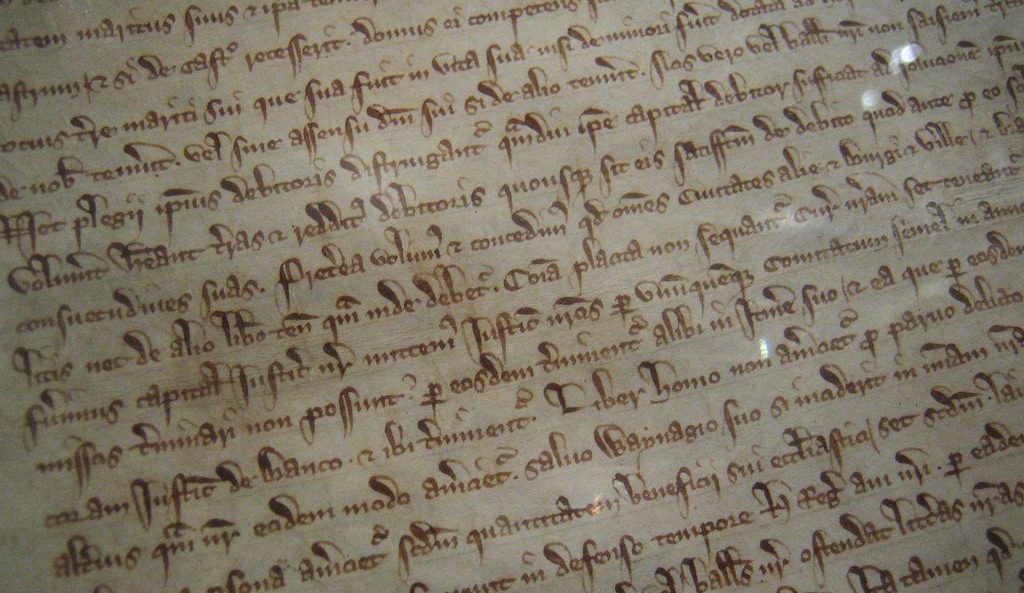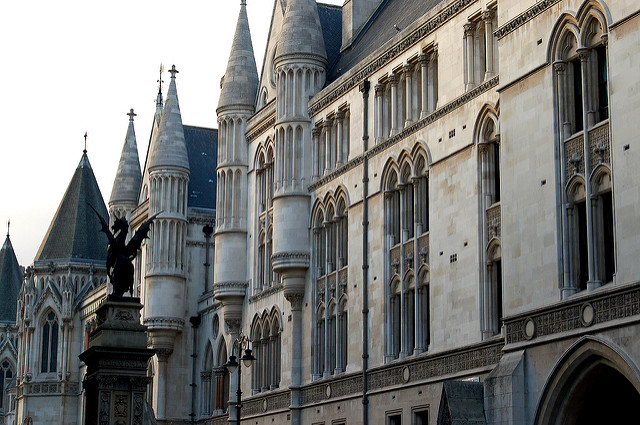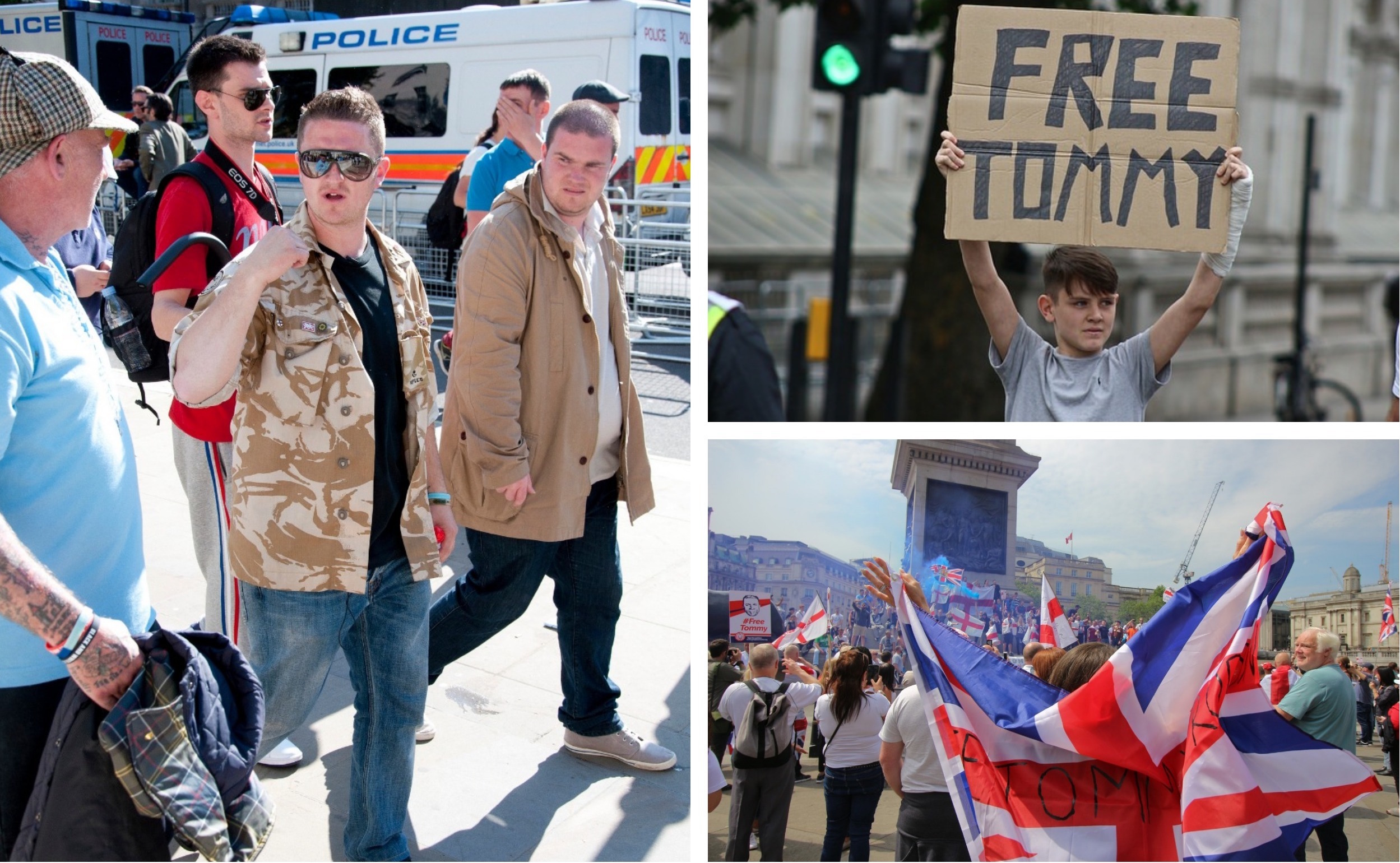Former English Defence League leader Tommy Robinson is to be freed from prison, and will later be retried for contempt of court.
In a judgment at the Court of Appeal, a judge found that there were technical flaws in the previous ruling, quashing the findings.
The 35-year-old had previously admitted a charge of contempt after filming outside of Leeds Crown Court during a trial, broadcasting details about the trial and the defendants.
But what happens next – and what does it have to do with our human rights?
Why Was Tommy Robinson Jailed?

A protest in support of Tommy Robinson. Image Credit: C Suthorn / Wikimedia
Tommy Robinson, or to use his real name Stephen Yaxley-Lennon, was sent to prison for 13 months back in May.
It was all to do with a Facebook Live he set up outside the court, in which he broadcast details about the trial and the defendants.
This particular trial had reporting restrictions put in place by the judge, forbidding any details from being published until it had ended.
The very act of making the broadcast meant that Robinson was breaching the reporting restriction, which amounts to contempt of court.
He’d also committed a contempt of court outside Canterbury Crown Court one year earlier and, at the time, had been given a three month suspended sentence.
In May 2018 though, when he was found guilty of contempt again, he was given 10 months for the incident in Leeds, and the three months from Canterbury were activated – meaning he was set to serve a total of 13 months.
What’s Contempt And Why Does It Matter?

The principle of a fair trial has been part of society since the Magna Carta in 1215. Image Credit: Jem Collins
Contempt of court is essentially a broad term for a range of offences against the justice system.
Some offences are set out in specific laws – like the 1981 Contempt of Court Act – and others are part of common law, which means they come from judicial precedent and custom, rather than specific acts of Parliament.
There are many different activities which fall under contempt but, basically, it’s all about protecting our right to a free trial.
Our human rights (and the ethos of democracy) say that we’re all entitled to a fair trial – and it’s a right which goes all the way back to Magna Carta in 1215.
Nowadays, the right to a fair trial is a more formal part of our law and is set out in Article 6 of the Human Rights Convention, which was made into UK law by the Human Rights Act. Essentially, one way contempt laws protect this right is by making sure there is no “substantial risk of serious prejudice”.
This means people and publications aren’t able to publish anything which might influence a potential jury’s decision – so no speculating as to who did (or didn’t) do the crime or campaigns by special interest groups trying to secure a particular decision.
[It contempt to publish anything which creates] a substantial risk of serious prejudice.
Contempt Of Court Act
It’s also key to remember that this applies regardless of a person’s intentions – it doesn’t matter if you didn’t mean to do it.
People are still allowed to report on trials, but there are specific rules about how the media reports criminal proceedings to make sure the coverage is fair and accurate.
What’s more, the judge can also impose additional reporting restrictions, which sometimes means the details of the trial aren’t revealed until later, if they feel reporting at the time would damage the right to a free trial.
And Why Will There Be A Retrial?

The Court of Appeal is held at the Royal Court of Justice.
It’s important to note that what’s happened here doesn’t mean Tommy Robinson is now completely free of all charges.
He previously admitted he breached contempt of court laws in Leeds. However, there were some key problems with his sentencing, and his own right to a free trial, which means the case will now be retried.
Essentially, the judge at the Court of Appeal found that the whole process had been rushed through – once the video had been taken down, there should have been time for both sides to investigate and proceed in a fully informed manner. Crucially, this meant that Tommy Robinson’s lawyer wasn’t able to defend him properly.
There was also no clear statement regarding what he was accused of, and there were further problems with his sentencing.
All in all, he hadn’t been given a fair trial, so the case will now be heard again. Because, human rights are for all of us – and so is a fair trial.







